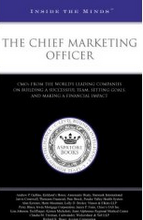
Unless you have been living on the same island as the cast of LOST, you know that Roland Burris is the Illinois Attorney General just seated in the US senate filling the post vacated by Barack Obama. Of course the big story around Burris’s appointment is his appointer – Rod Blagojevich (a.k.a. “Blago the Impeached”). Burris was the net result of Blagojevich’s “pay for preference” scandal in which he sought to personally profit through the appointment of Obama’s senate successor. “Blago” persisted in his legal right to make this appointment while being pursued for violating the Constitution of the United States in his attempt to make some personal coin off this appointment. Not a good guy at all. And remarkably stubborn in his “wrongness.” Not to mention his poor taste in hairstyles.
The good news is that Blagojevich is being impeached. And will face Federal charges. The bad news is that I still don’t trust Roland Burris. But I think I know why.
It is the “Transitivity of Trust” theory. Which I just made up. But it is based on some fairly sound mathematical principals, much of which we all learned in middle school or perhaps high school.
Do you remember the transitive property? It goes something like this:
In mathematics, a binary relation R over a set X is transitive if whenever an element a is related to an element b, and b is in turn related to an element c, then a is also related to c.
Transitivity is a key property of both partial order relations and equivalence relations.
Or more simply:
Whenever A = B and B = C, then also A = C.
So in this case, let’s say that I am “A”, and “Blago the Impeached” is “B”. I think I’ve already made the case (as has the entire media community) that Blagojevich is not a trustworthy guy. This is evidenced by his being the first governor to ever be impeached in the state if Illinois.
So A (me) does not trust B (“Blago”) at all. Who would?
Now, let’s say newly appointed senator Burris is “C”, It seems to me that Roland Burris must feel pretty good about Blagojevich and his decision to nominate him to the senate. After all, despite the controversy around Blagojevich’s rights, wrongs and general bad behavior Burris seems to have no problem accepting the nomination. Burris, in effect, trusts and supports Blagojevich. So to me that means “B=C”. In another words, Blagojevich and Burris appear to be cut from the same cloth – perhaps some kind of self-absorbing fabric.
So, if I (A) don’t trust Blagojevich (B). And (B) trusts Burris (C) (and vice versa). Then according to the “Transitivity of Trust” I (A) do not trust Burris (C). And that’s that.
It’s probably worth noting that Burris’ nomination came with the condition that it was for one term only. So even the government of the United States of America does not fully trust Roland Burris. Because of Rod Blagojevich. This transitivity thing is no joke.
The big lesson for me in this is how much a perception of trust can be influenced by the company one keeps. Trust (or lack thereof) is a very transferable notion. It can be rubbed on or off by those you choose to associate with. As a person, or institution becomes serious in it’s mission to become truly trustworthy (which means addressing image, culture, behaviors, values and transactions), the “Transitivity of Trust” becomes a very relevant phenomenon.
Copyright 2009 by the Reputation Garage and Allen & Gerritsen







No comments:
Post a Comment